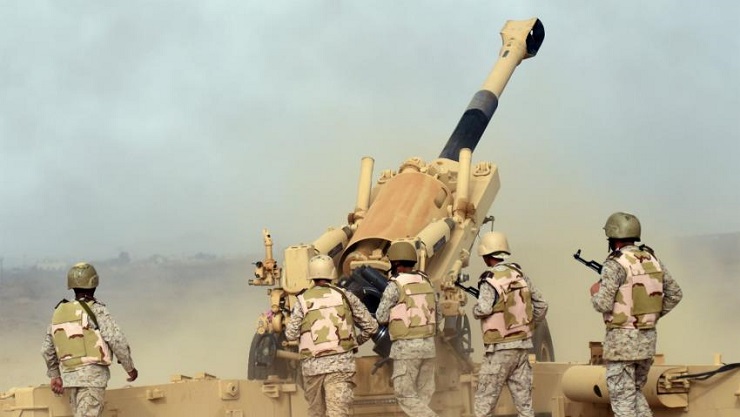While originally a war waged by a Saudi-led coalition against the Houthis, Yemen quickly turned into a war being fought as much between the Houthis and the coalition as within the coalition itself, particularly between Saudi Arabi and the UAE. Mutually conflicting interests within the coalition rather than the alleged Iranian support for the Houthis were perhaps one central reason why the invading forces couldn’t militarily defeat the Houthis. These conflicting interests were again at the centre of the division that existed on the ground in Yemen between the Saudi-backed Yemeni regime headed by Abd-Rabbu Mansour Hadi and UAE-backed southern separatist group known as the Southern Transitional Council (STC). These two groups were opposing each other until a few days ago when an agreement was reached and signed in Riyadh in the presence of Saudia’s Muhammad bin Salman and UAE’s Mohammad bin Zayed. This agreement, according to MBS, is a “milestone” that would lead to a “political solution to end the war in Yemen”, confirming only unwittingly that his military solution has met a drastic failure already.
While the agreement signed is still a far cry from a genuine step towards a settlement in Yemen between all parties and still allows a significant Saudi military presence and control of Yemeni cities, including Aden, in the south as well, it is not just usual to see the Saudis speaking of political solutions. The war, as a matter of fact, is taking a heavy toll in both military and economic terms.
Military, the loss of coalition soldiers has been huge. Over four thousand Sudanese fighters have been killed so far since the Saudi intervention in 2015. Saudi economy has been hit hard. The recent Houthi attack on oil facilities was perhaps the tipping point, forcing MBS to change his otherwise global plans about Aramco. This week, Aramco launched an initial public offering (IPO) to be listed on the local stock market, abandoning Mohamed bin Salman’s original plan to list it on overseas markets.
Riyadh has already confirmed that they are in separate talks with the Houthis as well. “We have had an open channel with the Houthis since 2016. We are continuing these communications to support peace in Yemen”, said a Saudi official. Notwithstanding the claim, there is little gainsaying that Saudi Arabia, already left alone in Yemen after UAE’s drawdown in July, hardly had any other option but to chart an alternative course.
Already after Houthi drone attacks inside Saudia Arabia on the Kingdom’s oil facilities, the Pentagon officials had reportedly said that he war in Yemen had degenerated into “an unwinnable quagmire” and that negotiations were/are inevitable to end a war that has created one of the worst humanitarian crisis of recent times. Accordingly, as US officials confirmed in September, they, too, were in talks with the Houthis to end the war in Yemen. While terms of these negotiations are still not known and there is no certainty that a peace deal will be achieved and executed, the war in Yemen, like the war in Afghanistan, has become a “stalemate” where none of the parties can continue to fight forever or enjoy a victory.
Beleaguered although Saudia and the US are, some reports have indicated that their basic term of reference in the on-going negotiations with the Houthis is the imperative of weaning them away from the influence of Tehran. This appears to be the cardinal point of bargain whereby the Saudis would end their war and let the Houthis become a part of the political system.
Anwar Gargash, minister of state for foreign affairs in the UAE, in fact recently confirmed that the Houthi rebels will have a wider role to play in the country’s future. Tehran, from its perspective, will see such offers as a conspiracy to erode its influence in the Saudi neighbouring country. Tehran, accordingly, took to criticise the deal between the Yemeni govt. and southern rebels, pointing out how this deal may actually allow Saudia to consolidate its occupation of Yemen.
At the same time, however, it is quite evident that the war in Yemen, like the war in Afghanistan, will not be settled on the battle field. Given the Saudi inability to wage a war for an unlimited period of time, the emphasis on ‘political solution’ will only increase in the coming days. This process, however, will not be a simple and straightforward one. On the contrary, it will be a highly contested one in which the strings of the players on the ground will remain deeply attached to their supporters in the region and in which the centre piece of Saudi talks will remain a roll back of whatever Iranian influence exists in Yemen. The Houthis, on the other hand, will have an added advantage of not only having withstood a Saudi invasion, but also capturing the capital. Their increasing military capability is another nightmare that the Saudis will have to calculate before attempting to woo the Houthis into abandoning Iran.
Salman Rafi Sheikh, research-analyst of International Relations and Pakistan’s foreign and domestic affairs, exclusively for the online magazine “New Eastern Outlook”.

